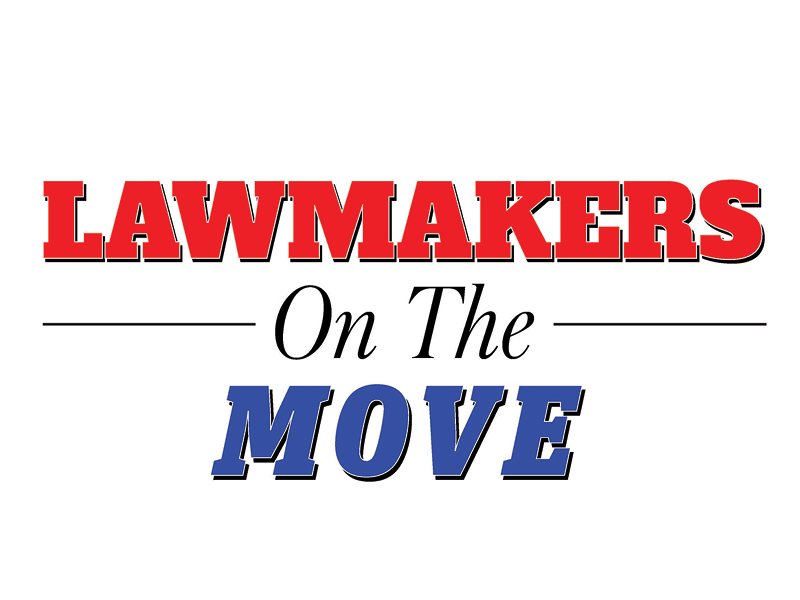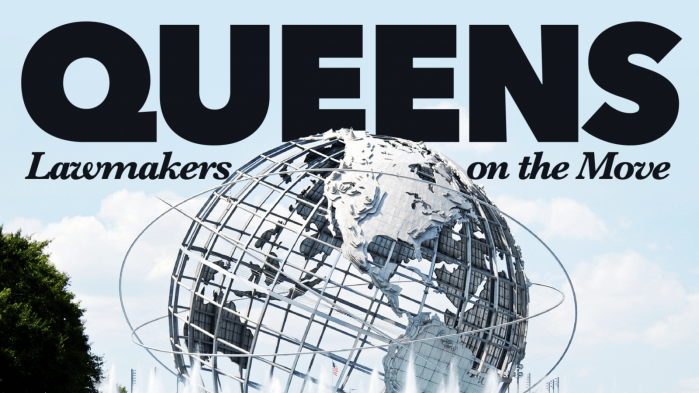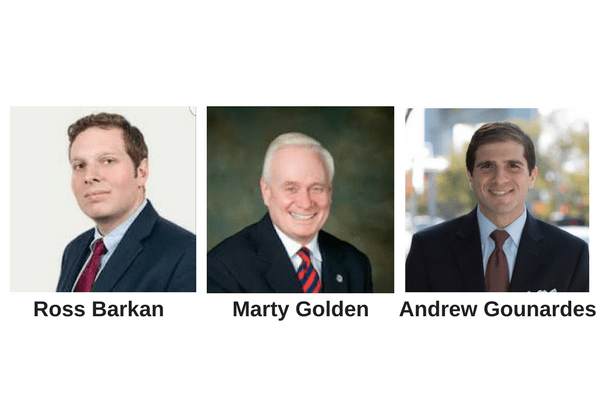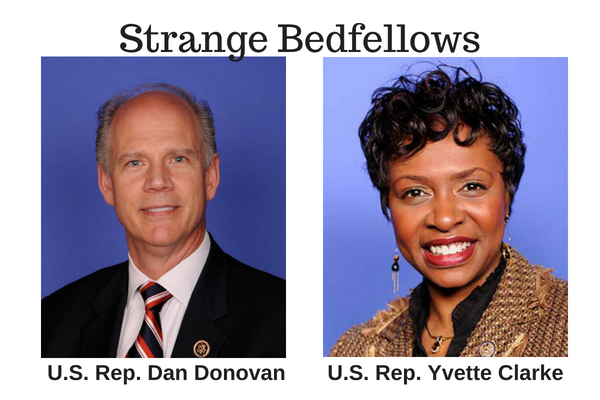Mayor Adams Cuts Red Tape for Building & Small Business Owners

New York City Mayor Eric Adams yesterday relaunched two programs that will help building and small business owners ensure the safety of their buildings without financial penalties — cutting red tape and eliminating barriers to critical safety evaluations and resources.
The two citywide initiatives — the No-Penalty Business Accessory Sign Inspection Program and the No-Penalty Deck and Retaining Wall Inspection Program — will give small business owners, homeowners, and other property owners throughout the five boroughs assurance about the condition of their properties, while providing valuable guidance on proper maintenance.
Participants can call through May 31 to receive a free inspection by the New York City Department of Buildings (DOB) to determine whether outdoor structures are in good condition with no visibly apparent violating conditions. Following the inspection, DOB will connect with property owners to discuss findings. If any unsafe conditions are discovered, DOB will provide guidance on any issues that need to be fixed without issuing any violations or penalties, allowing owners the opportunity to make corrective repairs and ensure the safety of their property.
“Government is most effective when we bring services directly to the people, and these initiatives keep New Yorkers safe by doing exactly that,” said Mayor Adams. “We want to identify issues before they become safety hazards, and we are doing that by partnering with small business and property owners instead of penalizing them.”
Stavisky, Pheffer Amato Push for Victims’ Rights in Albany


State Sen. Toby Ann Stavisky (D-Queens) joined Assemblywomen Stacey Pheffer Amato (D-Queens) yesterday at the State Capitol in Albany to highlight two bills the legislators are sponsoring. “Emma’s Law,” which will allow victims of misdemeanors to make an impact statement at sentencing, an opportunity that is currently only offered to victims of felony offenses.
Although misdemeanors are lesser crimes than felonies, they often result in significant mental trauma. The ability to present an impact statement can help empower survivors to restore a sense of control over their own lives and provide emotional closure.
Additionally, the legislators discussed a bill sponsored by Pheffer Amato and Stavisky that will assist victims at parole hearings. This bill will require district attorneys to inform victims of their right to submit a victim impact statement for review during the parole process. It will also ensure that victims are alerted to upcoming parole hearings and understand their right to testify at that hearing.
“Victims of all crimes, whether felony or misdemeanor, can carry scars from the incident for years,” said Stavisky. “Often, these are emotional scars that are present for years. Allowing victims of misdemeanors to give impact statements at sentencings can often help in the process of healing and providing closure.”
“For too long we have forgotten about the victim, a person who has survived a crime,” said Pheffer Amato. “We believe that victims have a voice, and it needs to be amplified in all aspects of our criminal justice system. Our survivors need to be heard and be part of the process. Leaving survivors out of the equation makes them voiceless – and this is no longer acceptable. Survivors matter and we must give them the opportunity to express how a crime has impacted their life.”
Colton Sponsors Bill Designating September as First Responders Month

Assemblyman William Colton (D-Brooklyn) has introduced bill A-3951 in the Assembly to designate the month of September to the first responders.
“As we all remember that on September 11, 2001, America experienced the most devastating attack on its homeland since Japanese suicide bombers struck our naval facilities at Pearl Harbor. This despicable attack by cowardly terrorists resulted in the death of nearly 3,000 ‘ innocent civilians and public servants of this State and Nation. Among those who lost their lives were 341 firefighters and 2 paramedics from the NYC Fire Department, 37 police officers from the Port Authority of New York and New Jersey Police Department, 23 police officers from the New York City Police Department, and 8 emergency medical technicians from private hospital units who paid the ultimate price while doing a job to which they were devoted. Currently, there is no statutory procedure for designating a month of commemoration and, thus, there is no month that is designated as “Firefighter, Police Officer, and Emergency Medical Technician Appreciation Month,” said Colton.
“Our brave and devoted firefighters, police officers, and emergency medical technicians should not receive our appreciation only as a result of tragic occurrences. Like the tragedy that just happened this past Sunday when we lost one of NY’s Bravest with the line of duty death of Fire Fighter Timothy Klein. I introduced bill A-3951 to designate the month of September to celebrate the effort and sacrifices that first responders make to serving their communities,” he added.
Gianaris’ Bill Improving Environmental Enforcement Passes Senate

Senate Deputy Leader Michael Gianaris (D-Queens) announced the state senate passed his legislation (S.1237) that would give the state additional tools to protect the environment, demanding polluters and others not just pay fines and fees but also put a stop to their destructive practices.
“I am proud the Senate continues to lead the fight against the climate crisis. We already enacted our nation-leading effort to move away from fossil fuels and towards a clean future by enacting the CLCPA, but much remains to be done to protect our planet,” said Gianaris. “The bills we are passing today will continue our progress and help fulfill our obligations to future generations.”
Gianaris’ bill would close a loophole in the Environmental Conservation Law by allowing the state to prevent environmental malfeasance by seeking more aggressive enforcement and injunctive relief.
















